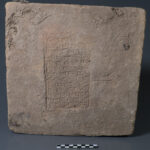The French Revolution holds a significant place in the annals of political history. It was a time of radical social and political upheaval in France that had a lasting impact not only on the country itself, but also on the whole of Europe. This historic event, which took place between 1789 and 1799, was a turning point that saw the end of the monarchy and the rise of the republic in France.
The Context: Early Modern France
To comprehend the French Revolution, it is essential to understand the political landscape of early modern France. During this period, France was divided into three estates: the clergy, the nobility, and everyone else, known as the Third Estate. The vast majority of the population belonged to the Third Estate, yet they had minimal political power and were burdened with heavy taxation. This socio-political inequality laid the groundwork for the eruption of revolutionary fervor.

Credit: www.facebook.com
Causes of the Revolution
Several factors contributed to the outbreak of the French Revolution. Economic hardships, dissatisfaction with the monarchy, and the influence of Enlightenment ideas were pivotal in fomenting discontent among the French populace. The financial strain on the country, coupled with the lavish lifestyle of the royal family and the nobility, created widespread resentment and anger amongst the common people.
The Key Events
The French Revolution unfolded through a series of key events that reshaped the political landscape of France. The storming of the Bastille on July 14, 1789, marked the beginning of the revolution and the fall of the monarchy. This was followed by the Reign of Terror, a period of immense violence and political repression, and the eventual rise of Napoleon Bonaparte, who would become a pivotal figure in European history.
Impact on Political History
The French Revolution left an indelible mark on political history, serving as a catalyst for the spread of revolutionary ideals across Europe. It prompted the fall of the old feudal order, the rise of nationalism, and the emergence of modern ideologies such as liberalism and conservatism. The revolutionary fervor that swept through France fundamentally altered the political landscape of the continent and influenced the course of history in the centuries that followed.
Legacy and Lessons
The French Revolution’s legacy is far-reaching, with its lessons continuing to resonate in contemporary political discourse. It stands as a testament to the power of popular uprising and the potential for radical transformation in the face of entrenched political systems. The revolution’s enduring impact underscores the importance of addressing social and political inequality, as well as the need for progressive reform to ensure the stability and prosperity of a nation.

Credit: www.amazon.com
Frequently Asked Questions On Unraveling The Early Modern Political History French Revolution: A Fascinating Journey
What Were The Main Causes Of The French Revolution?
The main causes of the French Revolution were social inequality, financial crisis, and political discontent among the French population.
How Did The French Revolution Impact Europe?
The French Revolution had a profound impact on Europe, as it sparked a wave of democratic movements and nationalist aspirations across the continent.
Who Were The Key Figures In The French Revolution?
Some key figures in the French Revolution include Maximilien Robespierre, Napoleon Bonaparte, Jean-Paul Marat, and King Louis XVI.
What Were The Key Events Of The French Revolution?
Key events of the French Revolution include the storming of the Bastille, the Reign of Terror, the execution of King Louis XVI, and the rise of Napoleon Bonaparte.
Conclusion
In conclusion, the French Revolution stands as a pivotal chapter in early modern political history. Its profound impact on France and its reverberations across Europe cement its status as a transformative and paradigm-shifting historical event. By delving into the causes, events, and consequences of this revolution, we gain valuable insights into the complexities of political upheaval and the enduring quest for liberty, equality, and fraternity.
Guest Author Sakhawat-Shuvo wrote and edited this Article based on his best knowledge and understanding. These opinions and remarks are not endorsed or guaranteed by epichistoria.com or EpicHistoria. The Epic Historia does not guarantee this article’s content. Readers should verify and use their judgment before trusting the content. Also, the Images used in this Article are the copyright of their Respective Owners. Please use our Comment Box or Contact Us form to report this content. This information is not accountable for losses, injuries, or damages.
